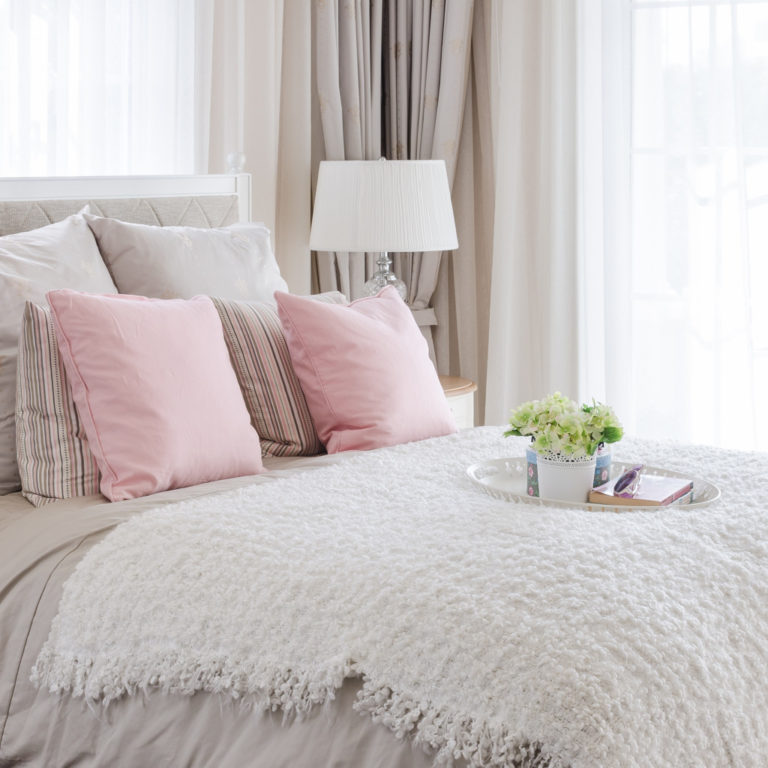Many of us go through periods where we just can’t seem to get the sleep we need at night, but there are some simple steps you can take to help improve your sleeping patterns and wake up feeling refreshed and recharged in the morning.
People are realizing that optimizing your space can help you enjoy a more restful night and make it easier to fall asleep. Many things in life are difficult to regulate or change. You can’t control when the sun rises and sets, and sometimes you can’t get to sleep no matter how tired you are! One thing you can change is your bedroom environment, which has an enormous impact on your ability to rest soundly at night and wake up fully rested in the morning. This article will give you seven ways to optimize your bedroom environment so that you can sleep better at night and wake up ready to take on your day!
Buy Scented Candles
Scented candles can make your bedroom environment less stressful, relaxing you and improving your quality of sleep. Candlelight can help promote relaxation, so if you’re looking to unwind after a long day at work or school, lighting some scented candles is a great way to do it. For maximum relaxation, pick up some lavender or chamomile-scented candles—or any candle that appeals to you. These are generally relaxing scents.
Keep It Cool
Studies have shown that you sleep better in a cool room. If you live in a hot climate area, air conditioning is your best friend. Keeping a window open isn’t always an option — either because it creates noise or disrupts privacy. You can invest in an air conditioner and keep it running while you sleep. Contact a trusted HVAC company for further advice on installing AC units.
Keep It Dark
Light has a big impact on our sleep habits, so it’s important to create an environment that allows us to fall asleep naturally. Avoid brightly lit devices like cell phones and TVs, and use blackout curtains on your windows. Light has a big impact on our sleep habits, so it’s important to create an environment that allows us to fall asleep naturally.
Invest in A Good Bed Foam
For a few extra dollars, you can purchase a foam mattress that will provide you with more support than most mass-produced mattresses. If you choose to go with an innerspring model, make sure it’s supportive by trying out several models before purchasing one. Once your bed is chosen, buy pillows and sheets that are of quality construction. Finally, invest in a high-quality blanket or comforter. It’s better for your health and better for your sleep.
Get Rid of Clutter

Visual clutter can keep you awake at night, so start keeping your bedroom tidy. Minimize distractions and keep your bedroom neat. Practice making your bed every morning when you wake up. Also, avoid having a cluttered floor and put everything in place every chance you get. Invest in storage spaces and a small trash bin for your room.
Put Silk Sheets
Silk sheets feel luxurious and have a soft, silky texture that’s wonderful on your skin. They also help you sleep better by regulating body temperature so you can find comfort in varying temperatures. Silk is naturally hypoallergenic, which means it’s less likely to cause allergic reactions like rashes and itchiness that often occur with synthetic fibers such as polyester.
Additionally, silk is one of few fabrics with natural antibacterial properties. Many people are sensitive or even allergic to synthetics — so not only do silk sheets look great in your bedroom and make you feel pampered, they may keep you healthier.
Place A Humidifier Next To You
It may seem counterintuitive, as humidifiers are designed to make your room more comfortable. But humidity is an important factor in promoting healthy sleep; when our bodies aren’t properly hydrated, we tend to toss and turn through our sleep cycles. Before you go to bed each night, place a humidifier near your bed so that it can increase moisture in your bedroom during sleep. It can also make your room smell great since there are a lot of options like scented oils which are safe to put in there.
In truth, a good night’s sleep starts with your day-to-day activities and what you do before bed. If you’re finding it hard to get that full eight hours of restorative sleep, consider doing more of these helpful habits. The tips above are general and won’t necessarily fit everyone — but if even just one helps you get some better sleep, it will have been worth sharing.













